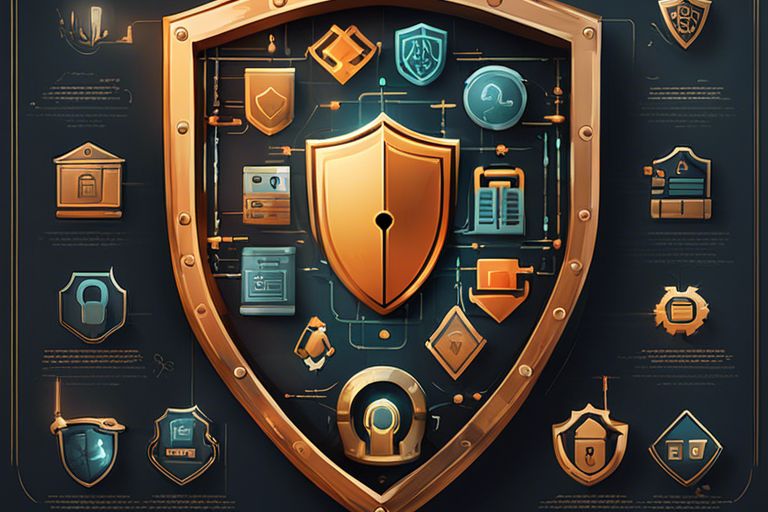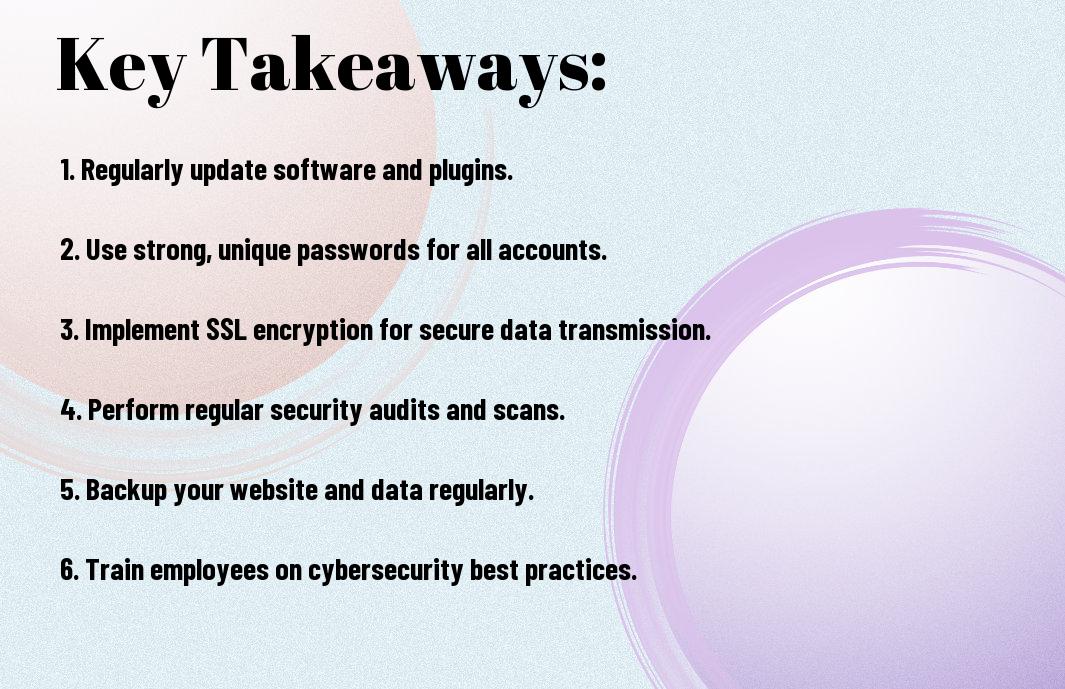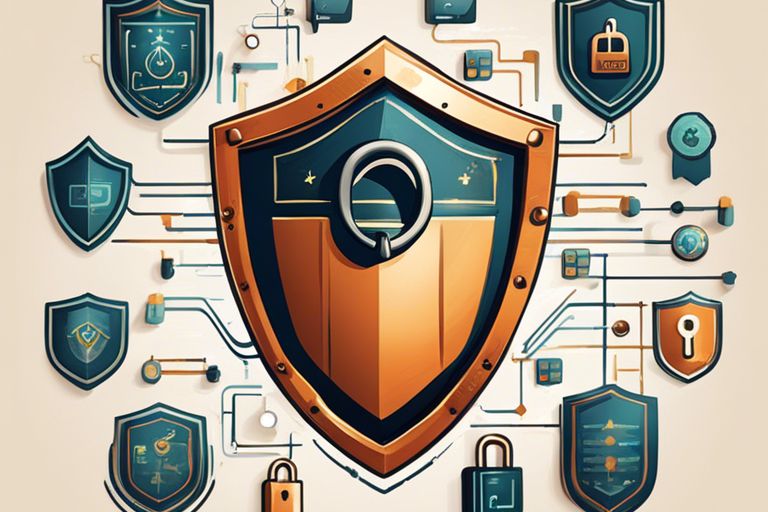
Over the vast expanse of the internet, ensuring your website stays secure and protected is vital in safeguarding your data and reputation. With cyber threats lurking at every virtual corner, it is crucial to take proactive measures to protect your online presence. From keeping software up to date to using strong passwords, security should be a top priority for all website owners. This blog post explores 5 crucial tips to keep your website safe and secure from malicious cyber attacks. Let’s dive in and fortify your digital fortress!
Key Takeaways:
- Regular Updates: Consistently update your website’s software and plugins to keep security features up to date.
- Strong Passwords: Use complex passwords and consider implementing multi-factor authentication to add an extra layer of security.
- Regular Backups: Create regular backups of your website to ensure that you can quickly restore in case of a security breach.


Firewall Fortress: Keeping Unwanted Guests Out
The Magic of Firewalls
Keeping your website secure is like protecting a fortress. It all starts with a good old-fashioned moat – your firewall. This digital wall acts as a gatekeeper, monitoring and filtering the incoming and outgoing traffic to keep the bad actors at bay. Just like a bouncer at a club, the firewall decides who gets in and who gets kicked out.
Configuring Your Firewall for Maximum Defense
To fortify your digital defenses, you need to configure your firewall for maximum protection. Just like setting up traps and barriers in a medieval castle, configuring your firewall involves setting up rules and permissions to block malicious traffic. Note, it’s not just about keeping the riff-raff out; it’s also about letting the good guys in without any hassle.
Plus, make sure to regularly update your firewall settings to keep up with the ever-evolving threats in the cyber world. By staying vigilant and proactive in your firewall management, you can ensure your website remains a safe and secure haven for your visitors.
Update Empire: Staying Ahead of the Threats
Regular Updates: The Elixir of Cyber Longevity
Not updating your website is like leaving the front door of your house wide open for cyber intruders. Regular updates are the secret sauce for keeping your digital fortress secure and protected. By staying on top of software patches and security fixes, you can significantly reduce the risk of falling victim to cyber threats.
The Perils of Procrastination in Security Updates
Elixir of Cyber Longevity
Threats
Procrastination may be your worst enemy when it comes to security updates. Ignoring those pesky update notifications is like playing a game of Russian roulette with your website’s security. The longer you delay, the more vulnerable you become to potential cyber attacks. Don’t wait until it’s too late to hit that update button!
Password Paradise: The Art of Creating Unbreachable Keys
Strong Password Policies: Your First Line of Defense
On the grand stage of cybersecurity, your password is the opening act. It sets the tone for your entire security show. By implementing strong password policies, you are building a solid foundation for your website’s defense. Keep in mind, complexity is key. Mix in a variety of letters, numbers, and special characters to create a password that even the most sophisticated hackers would struggle to crack.
Two-Factor Authentication: Double the Trouble for Hackers
Defense against cyber threats is like a dynamic duo – enter two-factor authentication. By adding an extra layer of security beyond the traditional password, you’re giving hackers a run for their money. This method requires not only something you know (like a password) but also something you have (like a code sent to your phone). This double verification process significantly reduces the risk of unauthorized access and adds an extra shield to your online fortress.
Backup Battleground: Preparing for the Worst
The Importance of Regular Backups
Now, picture this: you’ve spent hours crafting the perfect website, pouring your heart and soul into every pixel and line of code. Then, disaster strikes – a cyberattack, a server crash, or even a simple human error wipes out your hard work in an instant. That’s where regular backups come in as your knight in shining armor, ready to swoop in and save the day. An crucial step in safeguarding your digital masterpiece, regular backups ensure that even in the face of the worst-case scenarios, your website can rise from the ashes like a phoenix.
Secure and Accessible: Best Practices for Backup Storage
Secure your backups like you’re guarding the crown jewels, but make them more accessible than your favorite snack stash. An encrypted external hard drive or a reliable cloud storage solution can be your best friends in this digital age. Regularly updating and testing your backups is like giving them a VIP pass to the fortress of security. Do not forget, the key is to ensure that your backups are secure from prying eyes, yet easily accessible in times of need.
SSL Stronghold: Encrypting the Data Superhighway
Understanding SSL Certificates
Many website owners are aware of the importance of SSL certificates, but not everyone fully understands what they are and how they work. In simple terms, SSL (Secure Sockets Layer) certificates are small data files that digitally bind a cryptographic key to an organization’s details.
Implementing SSL: A Step-by-Step Guide
Any website looking to enhance its security measures should consider implementing SSL. This step-by-step guide will help you navigate the process seamlessly. Let’s break it down into easy-to-follow steps:
| Step 1: Choose the right SSL certificate provider | Step 2: Purchase and activate the SSL certificate |
| Step 3: Install the certificate on your web server | Step 4: Update your website to use HTTPS |
The process of implementing SSL might seem daunting at first, but with the right guidance, you can secure your website effectively.
Another
The most important detail to remember when implementing SSL is to ensure that you choose a reputable SSL certificate provider. This decision can make or break the security of your website, so choosing a trusted provider is crucial. Additionally, regularly updating and renewing your SSL certificate is important to maintain a secure connection for your users.
Final Words
Considering all points mentioned above, it is crucial to prioritize the security of your website. By following these 5 ways to ensure your website stays secure and protected, you can safeguard your online presence from potential threats and attacks. Be mindful of, a secure website not only protects your data but also builds trust with your visitors. So, stay vigilant, keep your security measures up to date, and keep those cyber hackers at bay. Happy safe surfing!
FAQ
Q: Why is ensuring website security important?
A: Because you don’t want your website to be the party everyone’s talking about for getting hacked. Keep it secure like Fort Knox!
Q: What are some common ways websites get compromised?
A: Oh, the classics! Weak passwords, outdated software, clicking on shady links, not backing up your data – it’s like leaving the front door unlocked for hackers!
Q: How can I ensure my website stays secure and protected?
A: Easy peasy! Keep your software updated, use strong passwords, enable HTTPS, regularly back up your data, and don’t click on suspicious links. Voilà, your website is now a fortress!

